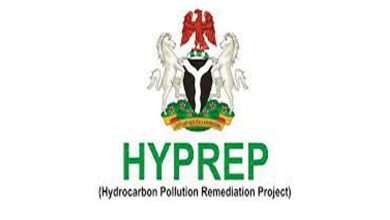PIA; Group Backs Olu Of Warri
Calls For Restraint From Dissenting Groups
A group, Warri Urban Security Network (WUSN), has called on those opposed to the list of Iwere Host Community Trust submitted by Olu of Warri, His Majesty, Ogiamme Atuwatse III, to put a stop to it, as the decision was in the overall best interest of the kingdom rather than selfish interest of few who desperately want to pocket the people’s commonwealth.
The group who made the appeal in a statement made available to newsmen in Warri, yesterday, noted that Olu of Warri intention to incorporate the host community trust into the Iwere Development Master Plan for overall advancement of the kingdom ought to be applauded by all and sundry, as against the ongoing campaign being masterminded by few persons in some communities.
WUSN has therefore urged the Delta state Governor, Hon. Sheriff Oborevwori, to as a matter urgency wade into the matter that has led to series of protests against the IOCs in some of these communities before it escalates to violence and consequent break of law and order in those places.
The statement signed by Chief Frank Onoriode and Comrade Dafe Okpako, Chairman and Secretary respectively read in part; “WUSN has watched with keen interest the ongoing agitation by some itsekiri host communities, especially in coastal settlements of Warri South-West Council on issues that bothers on Petroleum Industry Act (PIA) and have come to see the need to call for caution in way the matter is being handled by all stakeholders”.
“This Call for restraint has become absolutely necessary in view of the fact that this lingering area of dispute in the PIA between these affected communities and the IOCs, herein Chevron Nigeria Limited (CNL) and Shell Petroleum Development Company (SPDC), is beginning to generate tension and threat to the peace and security of lives as property within Warri and its environs”.
“As a responsible group with the mission and vision to promote peaceful co-existence based on mutual respect and trust, we call on parties to respect the wish of His Imperial Majesty, Ogiamme Atuwatshe III, the Olu of Warri, on this issue, as he represents the symbol of authority for the Itsekiri ethnic nationality and only the deciding factor on all matters relating to Iwere kingdom”.
“While we accept that the PIA clearly spelt out how the multi national oil companies relates with their host communities in line with the local content provision, it must however be noted that the Olu of Warri acted in consonance with the dictates of the PIA in the best possible interest of his people in general”
“Our findings on the issues currently threatening the peace in Itsekiri land, especially the Ugborodo axis, revealed that it was based on selfishness of very few individuals who are using some community leaders to achieve their sinister motive of diverting monies and other benefits that ought to have being used to develop and improve the wellbeing of indigenes across the various communities for their personal interest”.
“We have taken time to appraise the situation in the kingdom and we can authoritatively state that the setting up of the Iwere Host Community Trust by the monarch was a laudable one, as it was intended to ensure that the commonwealth of the people of Iwere kingdom was not hijacked by a few as it was the practice some few years back”.
“We, therefore want to seize this opportunity to appeal to officials of Nigerian Upstream Petroleum Regulatory Commission (NUPRC) to adopt the list of the members of Iwere Host Community Trust submitted by the Olu of Warri as the authentic list to work with in line the PIA provisions and the best interest of the people”.
“We also want to appeal to the aggrieved communities that has been protesting over the PIA to desist in their interest, as they are only being used by some few selfish individuals who want to keep the communities in their pockets perpetually for their personal gains”.
“Our body condemns the continuous protest and occupation of the premises of some of these IOCs and NUPRC Zonal office in Warri in its entirety and we hereby demand an end of the protest, as the masterminds are not serving their collective interests but what they stand to gain at the end”.
“And finally, we wish to appeal to the Governor of Delta state, Hon. Sheriff Oborevwori, to as a matter of urgency wade into the matter before it degenerates. This is more so, as those fanning the ember of discord among the Itsekiri indigenes would stop at nothing until they instigate a breakdown of law and order in these communities”.
[The Sun News Reports]



